How To Compost Wood Chips Fast (5 Ways To Do It!)

Incorporating wood chips into your garden can be beneficial by increasing nutrients in the soil over time. Wood chip garden mulch is organic, so it slowly breaks down, typically between three to six months. However, if you want to compost your wood chips quickly, you will need to add nitrogen to the mix.
To compost your wood chips fast, add nitrogen through fungi and bacteria to break down the wood. Incorporate natural materials and fertilizer and then moisten and move them around often to speed up the process.
Types of Wood Chips
Wood chips serve as decorative organic matter as well as add essential nutrients to the soil. There are several different types of wood chips available at your local garden store. Each type will have a different purpose in your garden to create a healthy environment.
Typical Wood Chips
Typical wood chips refer to garden wood chip mulch that can range from square to rectangular-shaped materials. They can consist of bark, heartwood, or a combination of both. These chips can be 1-inch to several inches long, depending on the manufacturer.
Because of the size of the wood chips, it will take several years for these to decay. Over time, these wood chips will turn from brown to yellow and then grey. Once this happens, you can work the decomposed wood chips into your soil to improve the texture and nutrient levels. Fresh wood chips should remain on top of the soil so that they don’t take nitrogen when worked into the garden.
Bark Wood Chips
Bark wood chips are dark in color and allow the soil to absorb sunlight and heat to warm the soil. This promotes seed germination and seedling growth. Bark wood chips are solid in chunk or shredded form and work well in windy areas.
Bark wood chips can help prevent soil erosion by adhering to each other and to prevent spreading. They can also discourage weed growth. As the bark decomposes into the soil, beneficial microorganisms will naturally aerate the soil.
Sawdust
Using sawdust is a good choice for plants that prefer acid. The benefits of sawdust are it covers a larger surface area and decays quickly. These qualities cause the topsoil to have high acidity levels. However, unlike larger wood chips, you need to reapply sawdust yearly.
Do not use sawdust from building materials like plywood. The chemicals will absorb into the soil and cause your plants to die.
How to Compost Wood Chips and Bark Fast
Wood chips and bark have a slow rate of natural decomposition because of their size. When wood chips are smaller, they decompose faster. Nitrogen is important in this process as fungi and bacteria use it to break the wood down.
Tools You Need for the Job:
- NPK granular fertilizer
- Organic greens
- Shovel
- Pitchfork
- Rake
To compost your wood chips fast, follow the steps below:
Step 1: Gather Wood Chips in a Pile
Using a rake, gather your wood chips in a pile that gets full sun or direct sunlight for at least six hours a day. This pile should be different from your regular compost pile if you have one.
Step 2: Incorporate Organic Green Materials
Incorporate vegetable and fruit scraps, coffee ground, and animal manure to speed up the decomposition process. Chop the materials into small pieces using a shovel or pitchfork.
Step 3: Spread Fertilizer Over the Pile
Speak NPK or 10-10-10 fertilizer that has equal amounts of nitrogen, phosphorus, and potassium. Use a handful for small piles and two handfuls for bigger piles.
If you want to use 100% of organic materials, you can substitute the fertilizer with urine or fresh chicken manure as a source of nitrogen.
Step 4: Moisten the Pile
Moisten the pile to speed up the decomposition process and help the fertilizer soak and dissolve the wood chips.
Step 5: Combine Materials
Use a pitchfork to combine the materials in a container or pile of similar size so that the center warms. A container that is three by five cubic feet works well.
Step 6: Mix the Compost Every Two Weeks
After you create the compost pile, mix it every two weeks. Use a pitchfork to turn the center to the outside of the pile. The wood chips and green materials should decompose into the finished compost within three months.
Wood chips will compost faster in the summer because the center of the pile is hot. Avoid turning the pile during the winter months so that the heat doesn’t escape and slow the decomposition process.
Other Methods of Composting Wood Chips
Add a Nitrogen Source
Wood is high in carbon and low in nitrogen. Microbes that break down wood feed on nitrogen, so the more nitrogen, the faster the pile will break down. Good sources of nitrogen include manure, coffee, grass clippings, kitchen scraps, and urine.
Highly-concentrated nitrogen sources like urea and ammonium sulfate are only necessary if you’re composting a large number of wood chips. If you’re composting at your home, any of the sources mentioned above are sufficient.
Make Wood Chips Small
The smaller the wood chips are, the faster they’ll decompose. If you have branches or bulky wood chips, you should run them through a wood chipper.
Inoculate the Compost Pile
To speed up the decomposition process, add fungi-rich substances to the pile. Good inoculants are mushroom spawn or wine cap mushroom mycelium, which you can find at your local garden store. If you see mold in your compost, it’s a sign that the microbes are working.
Add any inoculants before rain so that the mixture will spread out amongst the wood chips.
Heat the Compost Pile
Heating the compost pile will speed up wood chip decomposition. To heat compost, keep the pile moist and aerate it. Water the pile as you build it, or if you notice it is becoming too dry, and mix often.
Benefits of Using Wood Chip Mulch
If you need an affordable way to add nutrients to your garden, wood chips are the best option. Wood chips are useful for shrubs, trees, and small plants and better for drainage in the soil.
Here are seven benefits of using wood chip mulch:
Wood Chips Retain Soil Moisture
The most common problem with outdoor plants is that there is not enough moisture retention in the soil. Plants typically consume more water during hot days. Adding wood chips can prevent the loss of water from the soil on hot, dry days.
Wood Chips Break Down with Time
Rubber or synthetic wood chips break down very slowly. While wood chips also break down slowly, they are natural and can add essential nutrients to the garden over time.
Wood Chips Repel Pests
Pine, cedar, or cypress wood chips work best to repel pests. These wood chips can reduce fleas and eliminate ticks and gnats in the garden.
Wood Chips Create Better Soil Temperature in Winter
Putting wood chip mulch on the garden soil can create an insulation layer reducing the shock of winter temperatures. If you live in an area where it snows, the wood chips will help retain the moisture in the soil. When spring arrives, the garden will have healthy plants.
Wood Chips Control Weeds
A thick layer of two to four inches of wood chips can prevent the growth of weeds in your garden. This prevents weeds because they won’t be able to get an adequate amount of sunlight.
Wood Chips Prevent Soil Erosion
Wood chips create a defense layer on your garden beds to stop soil erosion as the wood pieces lock together. During heavy wind and rain, this prevents soil from washing away. Wood chips help to maintain the stability of soil in the garden.
Related Questions
When should I start my wood chip compost pile?
You can start a wood chip compost pile at any time of the year. However, the most favorable conditions for decomposition are moisture and heat. If you want quicker results, you should have your wood chips delivered by late winter or early spring. This can give you a window of three to eight months of warm weather to quicken the process. You should always keep the mound of fresh wood chips moist so that it doesn’t slow down decomposition. Water your compost pile just as you would water your garden. Be sure to turn the wood chips every two weeks or so, so that the decomposition process is uniform throughout.
Do all wood chips compost the same way?
Wood chips do not all compost the same way. Some woods have rot-resisting properties and are suitable for construction. These are not recommended for gardens as they can slow the breakdown process. An example of wood that has a slow breakdown process is Cedar. It is common to see this type of wood in sawmills or lumber yards. Similar woods are oak, redwood, cypress, and black walnut.If you have wood chips that take longer to decompose, place the pile in a discrete area of the yard. You will have this compost pile longer than others, so you will want it out of sight.
Are there any alternatives to using wood chips?
There are some alternatives to wood chips. Soft, natural mulches tend to break down best in vegetable gardens. However, weed-free straw can also keep the soil moist and prevent weed growth. Straw is usually available at feed or garden stores. What you should keep in mind is that straw is not the same as hay. Hay can contain thousands of weed seeds, so keep this away from your garden. Another alternative is to spread untreated grass clippings on your garden once a week. Only apply an inch at a time so that they can dry out. Avoid using grass clippings that are treated with any herbicides or insecticides.

Stacy Randall is a wife, mother, and freelance writer from NOLA that has always had a love for DIY projects, home organization, and making spaces beautiful. Together with her husband, she has been spending the last several years lovingly renovating her grandparent's former home, making it their own and learning a lot about life along the way.
More by Stacy Randall



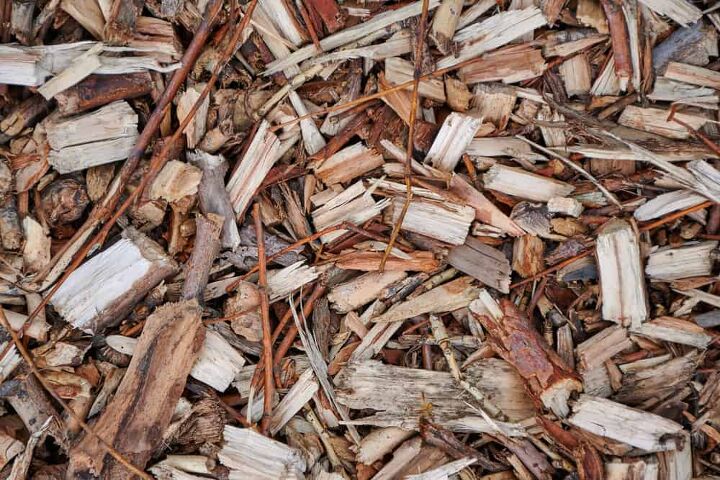






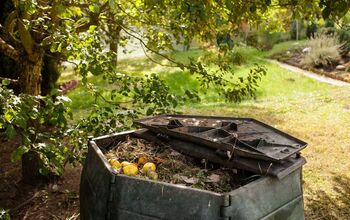
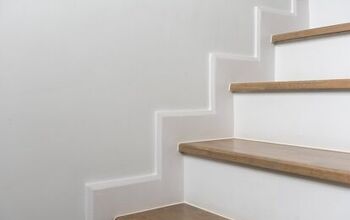
![10 Best Scroll Saws for 2022 [Ultimate Reviews & Buyer's Guide]](https://cdn-fastly.upgradedhome.com/media/2023/07/31/9070684/10-best-scroll-saws-for-2022-ultimate-reviews-buyer-s-guide.jpg?size=350x220)
![The 5 Best Angle Grinders – [2022 Reviews & Buyer's Guide]](https://cdn-fastly.upgradedhome.com/media/2023/07/31/9071326/the-5-best-angle-grinders-2022-reviews-buyer-s-guide.jpg?size=350x220)
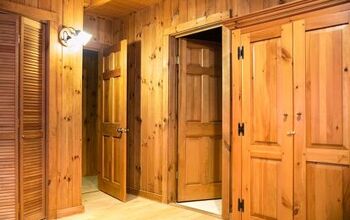
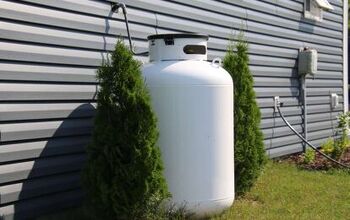



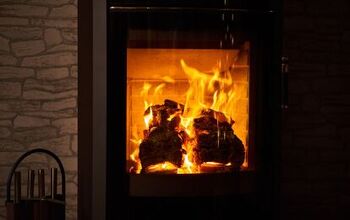
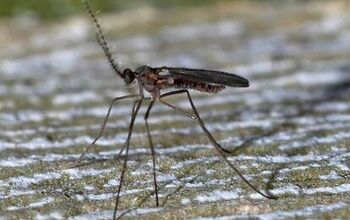
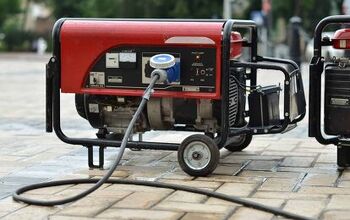

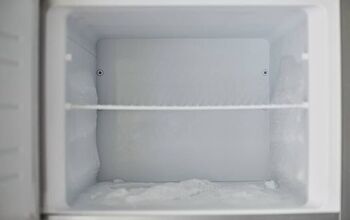
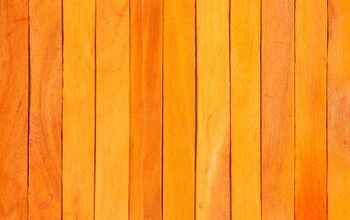

![12 Washing Machine Brands to Avoid [with Recall Data]](https://cdn-fastly.upgradedhome.com/media/2023/07/31/9075781/12-washing-machine-brands-to-avoid-with-recall-data.jpg?size=350x220)
